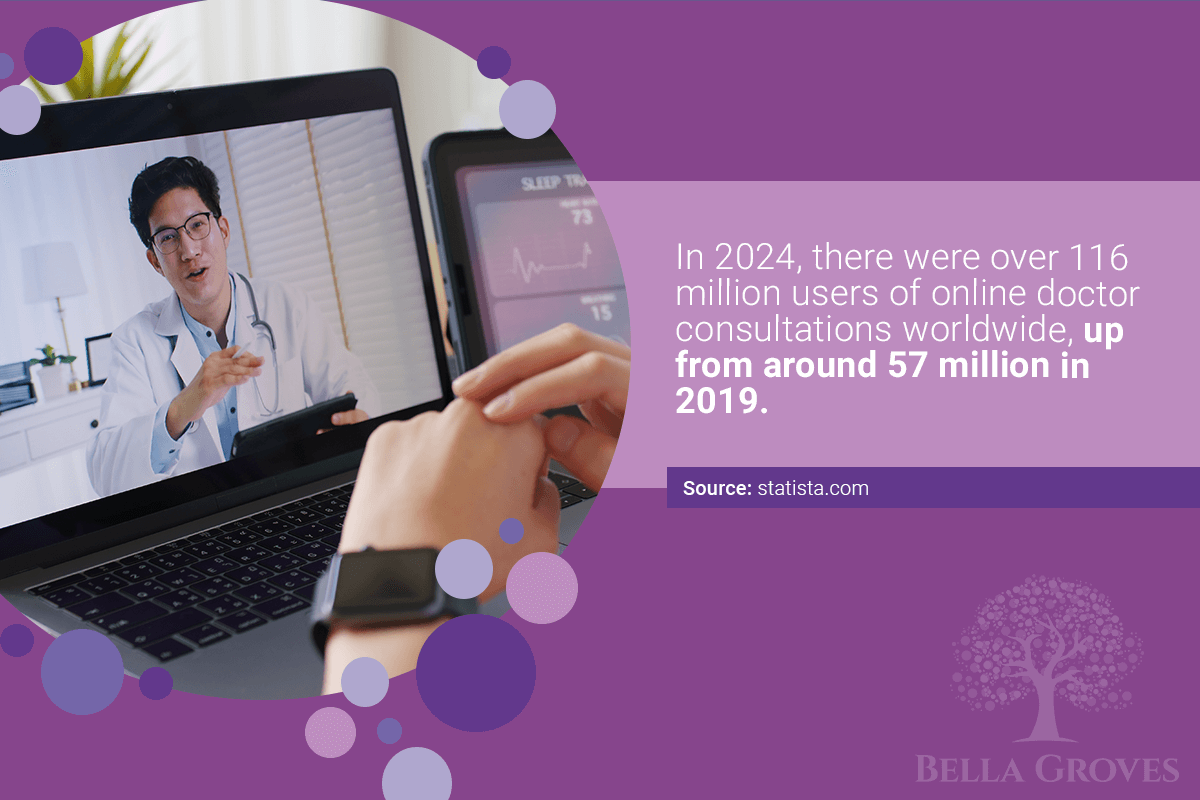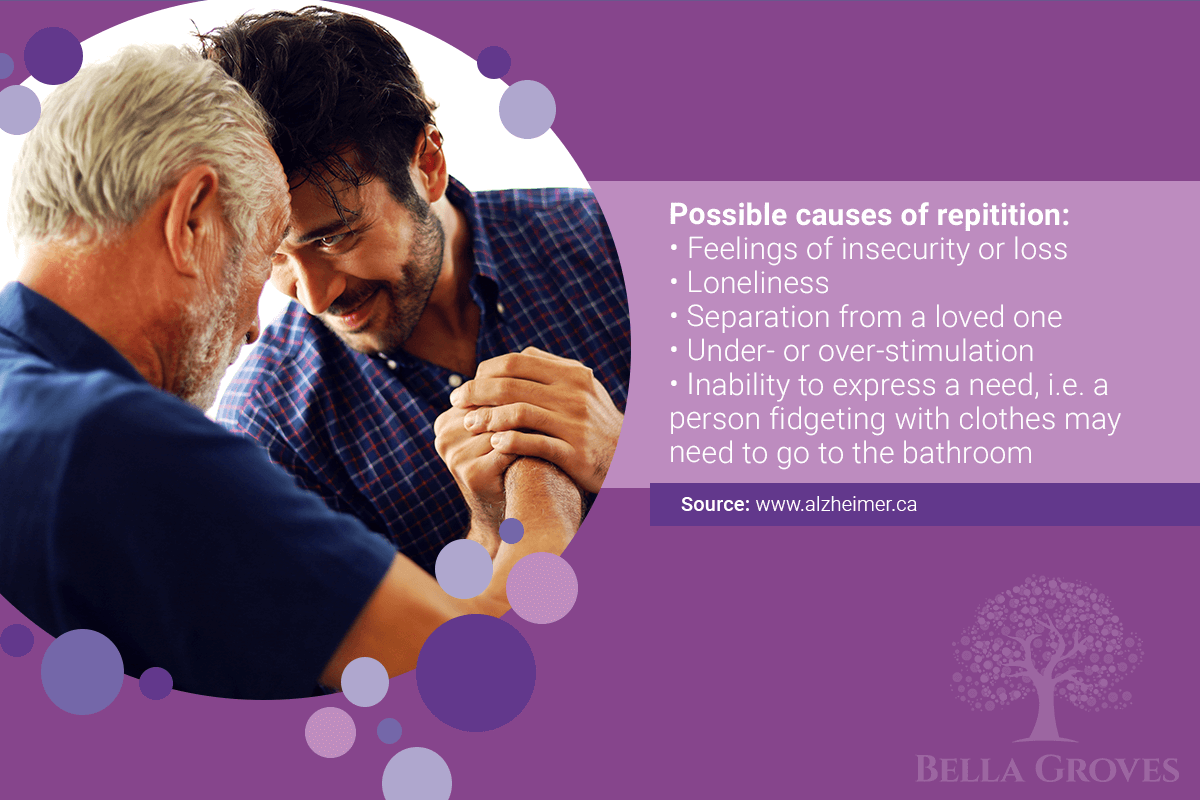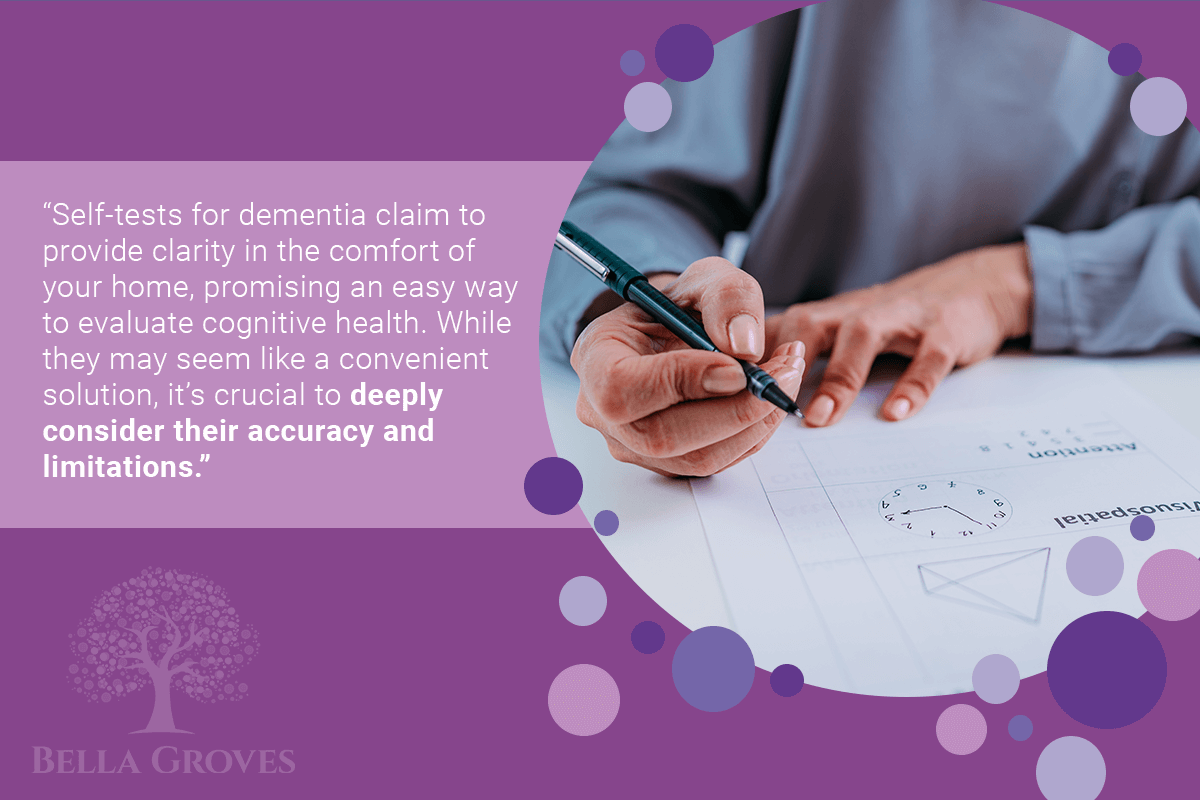
How Telehealth Can Ease Caregiver Stress
Caring for someone living with dementia is one of the most selfless and challenging roles a person can take on. For many care partners and family members, the stress that comes with this responsibility can feel overwhelming—physically, emotionally, and even financially.
But here’s the good news—you don’t have to shoulder this challenge alone. Telehealth, a fast-developing resource in healthcare, is transforming the way dementia care is delivered, providing care partners with much-needed support and relief. At Bella Groves, we are proud to provide dementia education and guide care partners, helping them use tools like telehealth to make their caregiving journeys more manageable and compassionate.
Whether you’re just beginning to explore telehealth or looking for ways to maximize its benefits, we hope this guide provides clarity and inspires hope. You deserve support, too.
Understanding Dementia Caregiver Stress
Caring for a person living with dementia isn’t “just” caregiving. From managing medication schedules to responding to behavioral changes, the demands are significant. Add the emotional heartache of watching someone you love cope with memory loss, and it’s easy to see why care partners often face high levels of stress.
Causes of Stress
- Physical demands: Assisting with mobility, personal care, and daily activities can leave you feeling exhausted.
- Emotional toll: The grief of seeing someone change, coupled with feelings of guilt or anxiety, can weigh heavily.
- Financial stress: From specialized care to medical appointments, dementia care can be expensive.
Furthermore, many care partners neglect their own well-being while focusing all their energy on their loved ones. This situation is common but preventable with the right support systems.
The Role of Telehealth in Dementia Care
Telehealth is redefining how families access care. It uses technology to connect you with healthcare professionals remotely, often through video calls, mobile apps, or even text messaging.
For dementia care partners, telehealth services specifically tailored to your needs can be a lifesaver—literally and figuratively. Here’s how:
- Accessible medical advice: Schedule virtual consultations with specialists without needing to travel.
- Behavioral support: Many telehealth providers help care partners address common challenges like mood swings, anxiety, or aggression in people living with dementia.
- Medication management: Easily connect with pharmacists or doctors to review prescriptions and ensure proper dosing.
- Ongoing education: Telehealth tools can teach you skills to manage care, from daily routines to crisis situations, enabling better outcomes for both you and your loved one.
By reducing the logistical barriers to receiving care, telehealth helps ease your load. When stressors are lightened, even just a little, it creates more room to focus on what matters most—spending quality time with the person you care about.
Practical Tips for Using Telehealth
If you’re new to telehealth, it may seem a little daunting at first. But don’t worry—it’s simpler than you think. Here’s how you can get started:
- Choose a reliable platform: Look for telehealth providers specializing in dementia care. Confirm they have features like video appointments, caregiver education modules, and easy-to-use tools.
- Prepare ahead of appointments: Write down questions or current challenges so you can make the most of every session.
- Use technology to track care: Explore apps for tracking medication schedules, symptoms, and mood changes. These details will be invaluable during telehealth consultations.
- Ask for help with setup: If you’re unfamiliar with video conferencing or tech platforms, don’t hesitate to ask family, friends, or the telehealth provider for guidance.
Remember—like any tool, telehealth works best when you’re comfortable using it. Dedicate some time to exploring features and asking questions; you’ll be a pro in no time.
Overcoming Barriers to Telehealth Adoption
While the benefits of telehealth are clear, adopting it does come with challenges. You might be nervous about the technology or unsure if your insurance will cover it. These roadblocks are valid—but manageable.
Tackling Common Barriers
- Technological challenges: If navigating technology feels overwhelming, consider low-tech platforms or devices designed for older adults. Many telehealth providers also have tech support available.
- Cost concerns: Not all insurance fully covers telehealth. However, many services offer affordable options tailored for care partners. Ask about discounts or sliding-scale fees.
- Limited internet access: If internet connectivity is an issue, some telehealth programs also offer phone consultations as an alternative.
At Bella Groves, we make it our mission to guide care partners through these hurdles. Whether it’s helping you identify the best telehealth provider or walking you through setup step by step, we’re here to bridge the gap.
The Future of Telehealth and Dementia Care
The intersection of telehealth and dementia care is still evolving, but the possibilities are exciting. From AI-driven tools to wearable devices that track health in real time, technology is moving toward better outcomes for families facing dementia.
Imagine being able to remotely monitor health metrics, receiving alerts long before an issue escalates, or having instant access to a virtual community of care partners as a support system. These emerging advancements promise a future where dementia care becomes not just easier but also more personal and proactive.
At Bella Groves, we’re committed to staying on the cutting edge of these changes, ensuring care partners have access to both today’s tools and tomorrow’s innovations.
A Brighter Path Forward
Caring for someone living with dementia is a difficult road, but it doesn’t have to be one you walk alone. Telehealth offers a lifeline—a way to ease the caregiver stress on your shoulders while ensuring your loved one receives high-quality, compassionate care.
If you’re curious about incorporating telehealth into your caregiving routine, we invite you to connect with Bella Groves. Our team is here to educate, empower, and equip you with the dementia education tools you need to thrive. Together, we can create a brighter path forward for you and your loved ones.


